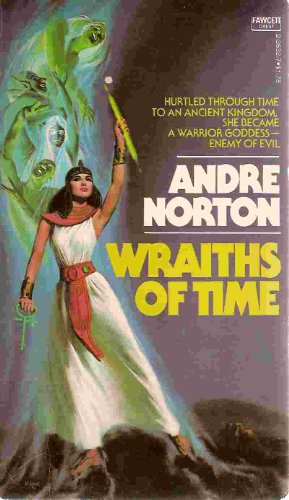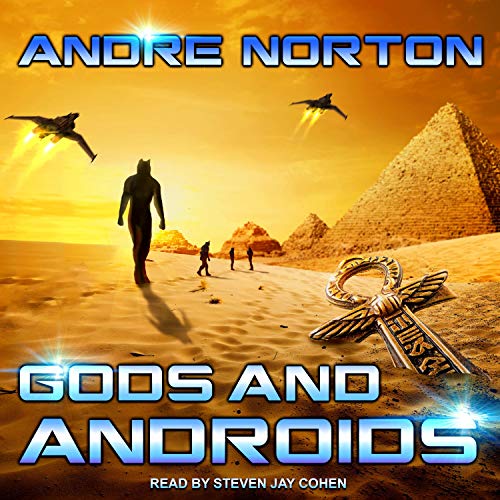
![]() Wraiths of time by Andre Norton
Wraiths of time by Andre Norton
Tallahassee (Tally) Mitford, a graduate student who studies archaeology and African history, has been asked to examine some Egyptian artifacts that appear to be very old, important, powerful, and radioactive.
When one of the relics pulls her into a parallel universe, Tally finds herself in Meroë, an ancient Nubian kingdom located on the Nile River. She is completely helpless there with no status and the inability to speak the language. She has no idea how to get back home.
When she’s rescued by some women who are the companions of the recently deceased princess Ashake, she is asked to impersonate the princess and help Queen Candace fend off the attacks of a powerful man who hopes to subjugate these women who just want to rule themselves.
Andre Norton’s Nubian civilization and young black female protagonist are unusual for a fantasy novel published in 1975. Before she’s drawn into the parallel universe, Tally has to deal with the hostility and prejudice that black women (still) experience in academia. After she arrives in Africa, she continues to deal with sexism. For inspiration, Tally thinks of the strong black women in African history that she studies and admires.
(Those of us searching for something to cringe at will be annoyed that Norton keeps referring to this educated young woman as a “girl,” and of course it would have been nice if black women had been able to also star in stories that didn’t take place in Africa, but let’s give some credit to Norton for featuring a black female protagonist in 1975! Oh, and demerits to whoever is responsible for the whitewashing of the two book covers shown here.)
When reading Andre Norton’s novels, I often find that I’m interested in her characters, the worlds she creates, and the personal, political, and other conflicts that her characters have to navigate. This is what she does best.
But usually at some point in the story the focus shifts to mysterious and often confusing fantasy elements that hijack the story and take it in a completely different and baffling direction.
These fantasy elements (e.g., telepathy, telekinesis, objects of power, parallel universes, wraiths, shadows, and the like) typically feel too abstract, too unmoored from the laws of nature, and not really well integrated with, or essential to, the story. It feels like there are no rules and no limits.
 That’s when I tend to lose interest and start to yearn for some sort of “system” where at least there are some rules to keep the plot from running amok. Wraiths of Time is better in this regard than many of her other stories, but it, unfortunately, suffers the same fate.
That’s when I tend to lose interest and start to yearn for some sort of “system” where at least there are some rules to keep the plot from running amok. Wraiths of Time is better in this regard than many of her other stories, but it, unfortunately, suffers the same fate.
I listened to the audio version of Wraiths of Time which is paired with Android at Arms (1971) in the omnibus called Gods and Androids which was originally published in print by Baen in 2004. Tantor Audio has recently released this omnibus in audio format. Stephen Jay Cohen isn’t my favorite narrator, but he does a fine job with these stories. I would recommend increasing the playback speed, though, since he tends to speak too slowly.



This will be added to my “to be read list.” =)
Please let me know how you like it, Zina!